Introduction
** An eerie email has just reached you. Is it a harmless marketing gimmick or a crafty attempt at phishing that could compromise your identity? Your pulse quickens as you read the subject line, sender address, and hover anxiously over the alluring link. But wait! Before you click and unleash digital chaos, a hilarious meme pops into your head, reminding you of the five red flags of a phishing scam. Relief washes over you, replaced by a knowing chuckle. You’ve been saved… by a meme?**
You did really read correctly. Memes, those small humorous nuggets and pop culture references, are emerging as the improbable cybersecurity field’s heroes. In addition to making us laugh, they inform, increase awareness, and foster a feeling of community among us in the face of evolving cyberthreats.
So grab a seat, pals who are knowledgeable about security, and get ready to explore the intriguing world of cybersecurity memes! We’ll interpret the jokes, find the hidden educational treasures, and investigate the newest developments that are enlightening and, dare we say, entertaining the internet community in this extensive guide.
To be clear, cybersecurity is a serious issue before we go on this amusing educational adventure. Malicious acts such as identity theft, virus attacks, and data breaches are real real challenges. But when employed carefully, comedy can be a useful tool for simplifying difficult ideas, increasing engagement, and humanizing cybersecurity expertise.
Come along with us as we uncover the mysteries of cybersecurity memes and learn how a little humor may help to keep your data and you secure!
Table of Contents
Decoding the Humor: A Deep Dive into Cybersecurity Memes
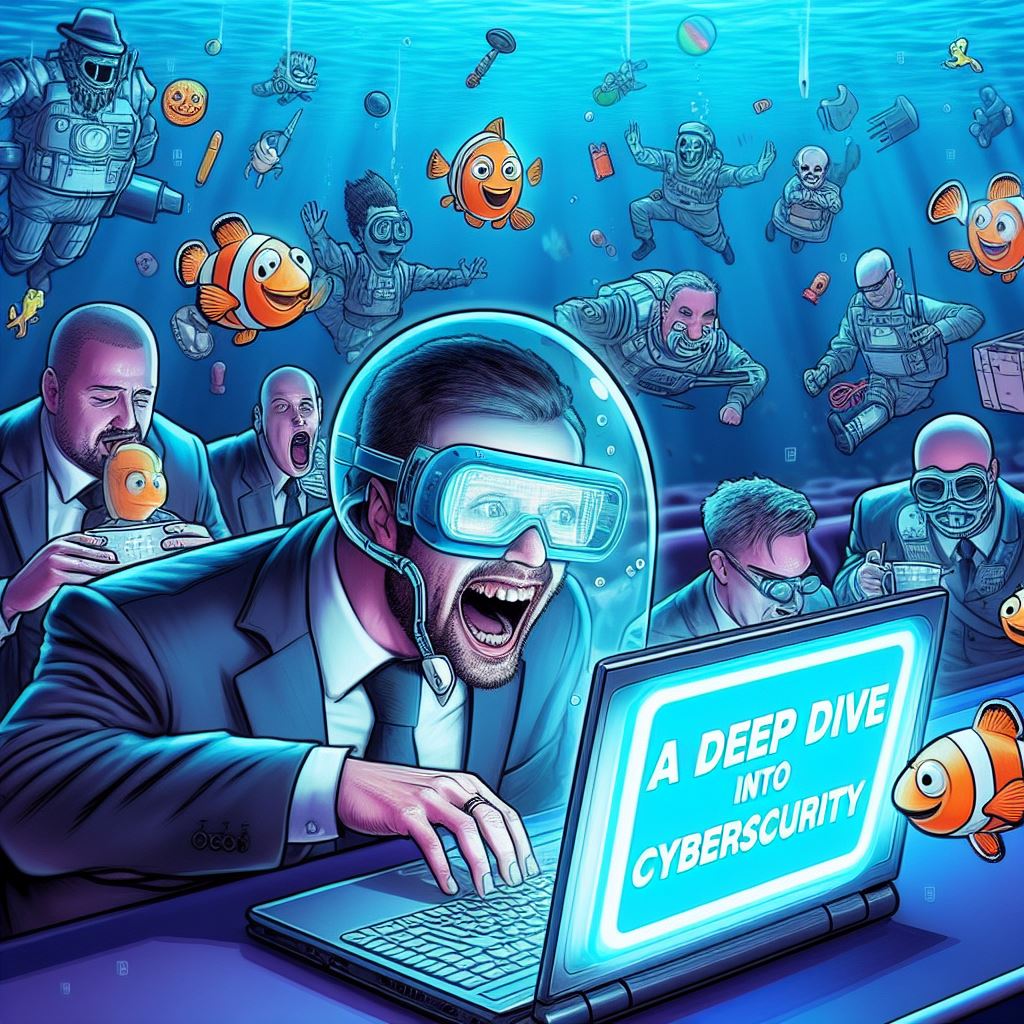
There is no shortage of humor on the internet, and cybersecurity is no different. Cybersecurity memes have established a distinct niche for themselves online, ranging from mocking the newest cyberthreats to relating to the hardships faced by IT professionals. But more than just being funny, these memes are useful resources for awareness-raising and education. Let’s delve deeper into the different subgenres of cybersecurity memes and the humor techniques they employ to unlock their hidden educational gems.
Subgenres of Cybersecurity Memes: Where Laughter Meets Learning
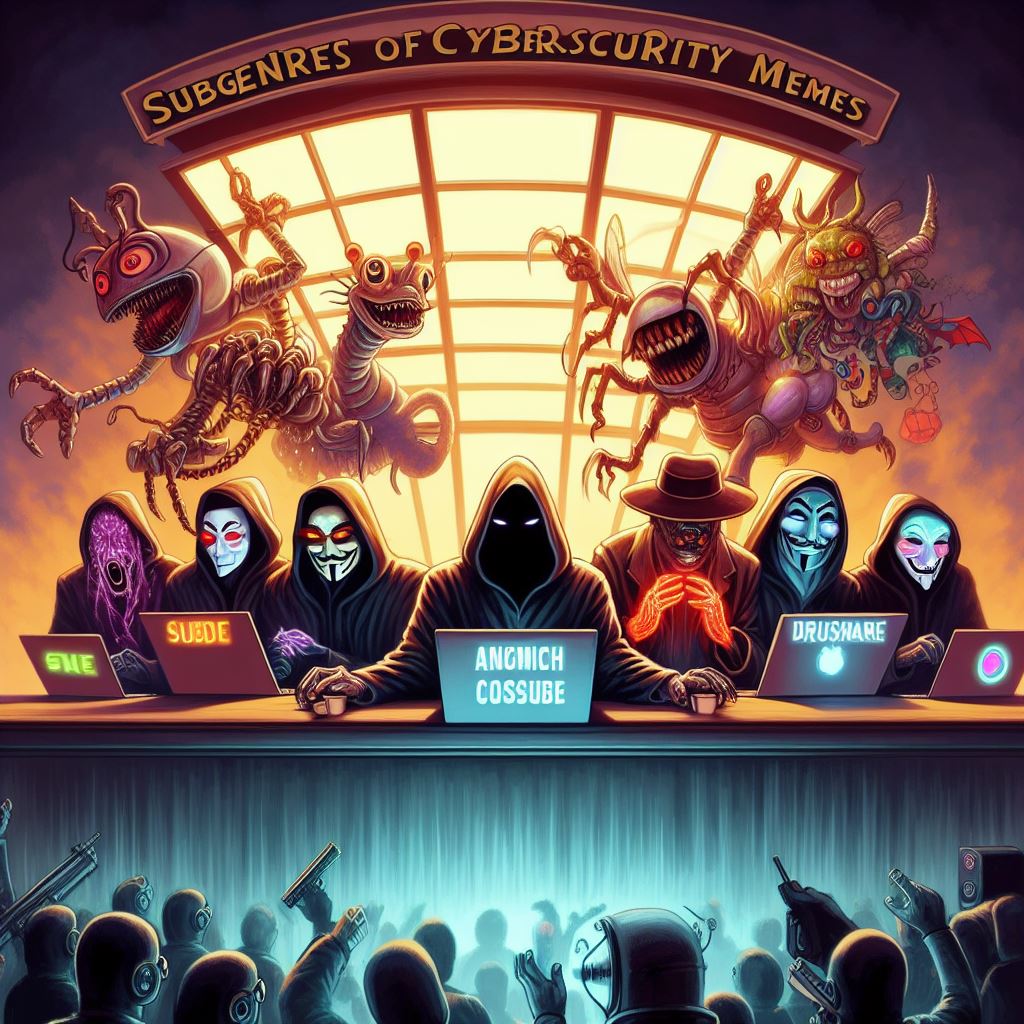
The realm of cybersecurity memes is broad and diverse, covering a range of issues and experiences in the sector. Below are a few of the most well-liked subgenres:
1. The IT Pro Struggle is Real: Ever encountered a user who forgets their password for the tenth time in a week? Or battled a printer with a mind of its own? IT professionals often find solace and humor in memes that depict these relatable struggles. These memes not only make people laugh together, but they also quietly emphasize how crucial user education and clear communication are to cybersecurity.
2. Demystifying the Dark Side: Cyberthreats via a Clearer Lens: Cyberthreats can range from frightening virus attacks to phishing frauds. Cybersecurity memes frequently take a humorous approach to these difficult subjects, breaking down the ideas and emphasizing warning signs. A phishing email meme, for example, with a subject line like “Urgent! Your bank account is in danger!” can serve as a helpful reminder to be wary of dubious emails and to double-check the sender’s identity before clicking any links.
3. Data Privacy: Where Humor Meets Concern: Memes offer a forum for voicing concerns and bringing attention to data privacy issues in an era where our data is continuously tracked and gathered. A meme that features the startled Pikachu meme and asks, “You thought your online activity was private?” might start a discussion on data security procedures and push users to exercise caution while disclosing personal information online.
4. Tech Trends Get the Meme Treatment: Memes stay up to date with the most recent developments in technology, from the emergence of artificial intelligence in cybersecurity to the constantly changing field of cloud security. These memes educate readers about these patterns while also igniting debates and promoting analysis of any possible ramifications.
These are only a handful of the many subgenres that exist within the realm of cybersecurity memes. Each subgenre uses humor to address specific concerns and challenges, making complex cybersecurity concepts more relatable and understandable for a wider audience.
Learning from the Laughter: How Cybersecurity Memes Educate and Empower
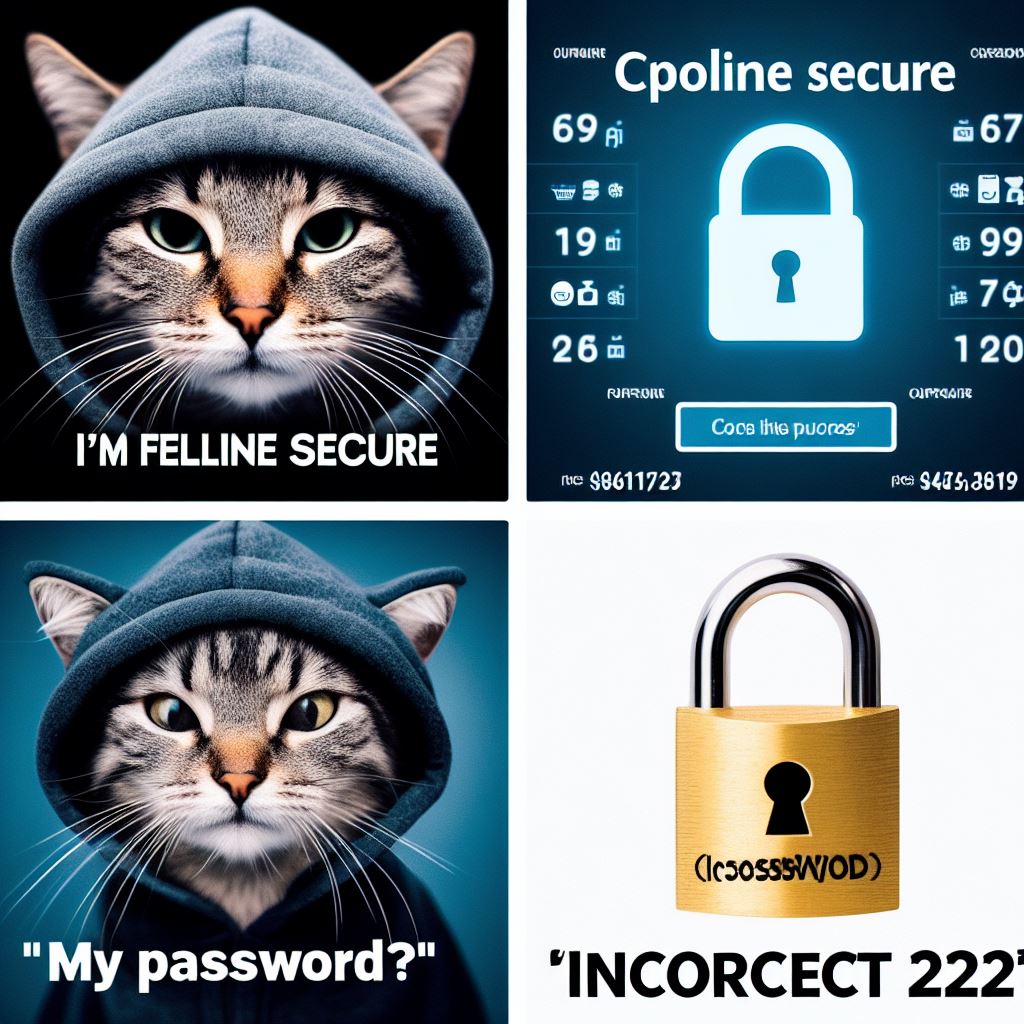
Humor is a potent tool for engagement and learning, not merely a way to pass the time. Memes about cybersecurity take advantage of this tendency to make difficult ideas more palatable, increase recall, and ultimately assist us in staying safe online. Let’s explore how these internet gems go beyond the laughs and contribute to genuine cybersecurity education.
Memes as Bite-Sized Educational Tools: Unlocking Complex Concepts
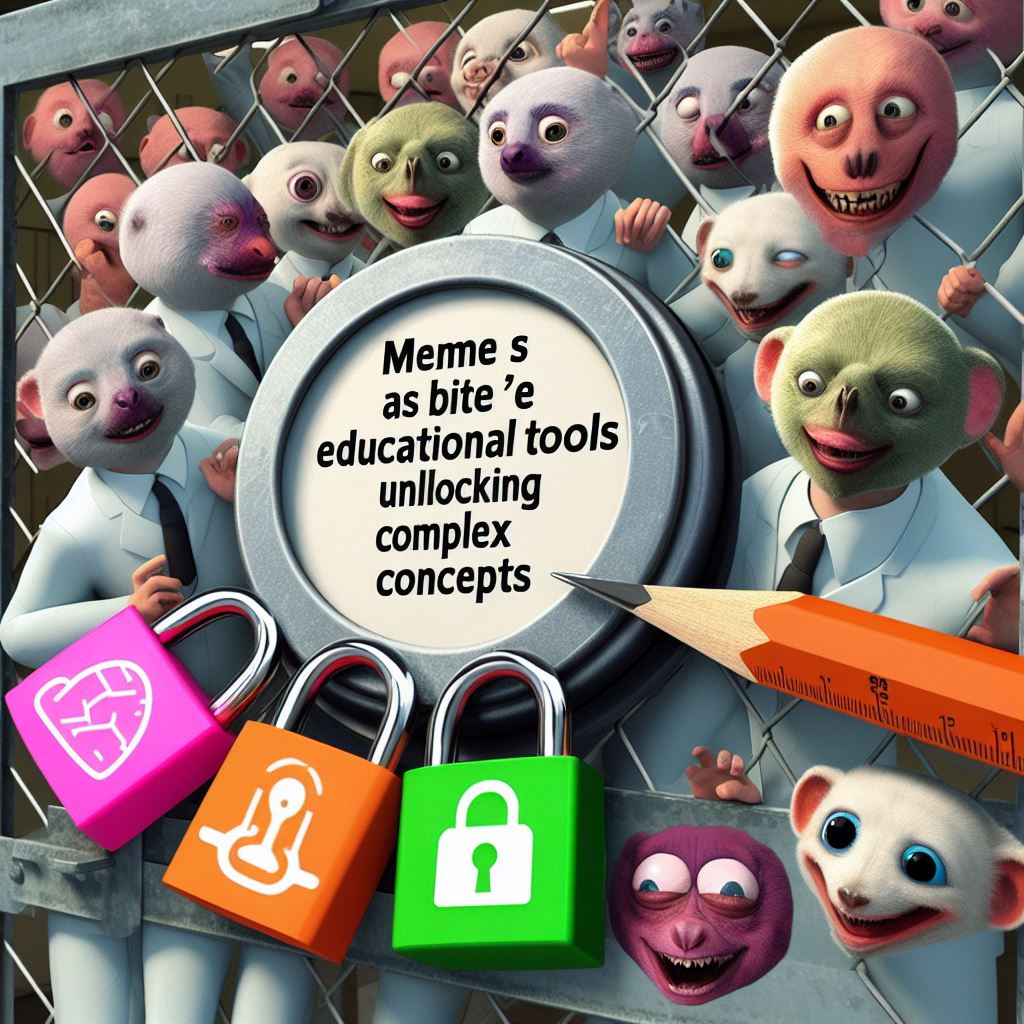
Imagine trying to decipher password encryption or multi-factor authentication through dry text alone. Now, picture a meme featuring a confused user labeled “Me trying to remember my 20th different password” paired with a stressed-out IT professional captioned “Meanwhile, IT support.” This amusing analogy immediately emphasizes the value of using strong passwords and draws attention to the difficulties IT managers encounter while overseeing user security.
According to research published in the American Psychological Association, humor improves memory and cognitive performance. By using relatable scenarios, exaggeration, and visual elements, cybersecurity memes make complex topics easier to grasp and remember. A 2022 study by Stanford University found that students who learned cybersecurity concepts through memes demonstrated significantly higher recall compared to those using traditional methods.
So, the next time you come across a meme depicting a hacker sweating over a locked firewall, remember: it’s not just funny, it’s subtly reinforcing the importance of strong cybersecurity measures.
From Chuckles to Caution: Cybersecurity Lessons Embedded in Memes
Cybersecurity memes aren’t just for laughs; they often carry valuable lessons embedded within their humor. Let’s examine two well-known memes in more detail and assess the security best practices they advocate:
1. Distracted Boyfriend Meme: This classic meme, modified for the cybersecurity space, usually shows a person identified as “user” being tricked by a “phishing email” into clicking on a dangerous “two-factor authentication” option instead of staying put. This profound yet hilarious message serves as a reminder to emphasize secure authentication methods and exercise caution when encountering dubious internet information.
2. Success Kid Meme: This meme, reimagined for cybersecurity, often depicts a child labeled “me after updating my software patches” with a triumphant fist pump. This lighthearted representation emphasizes the importance of keeping software updated to address vulnerabilities and protect against cyberattacks.
These are only two instances of how memes about cybersecurity include instructive messages in their comedy. Through identification of these implicit messages and introspection about our own online behaviors, we can acquire important knowledge and strengthen our cybersecurity posture.
Trending Cybersecurity Memes for 2024: Staying Ahead of the Curve
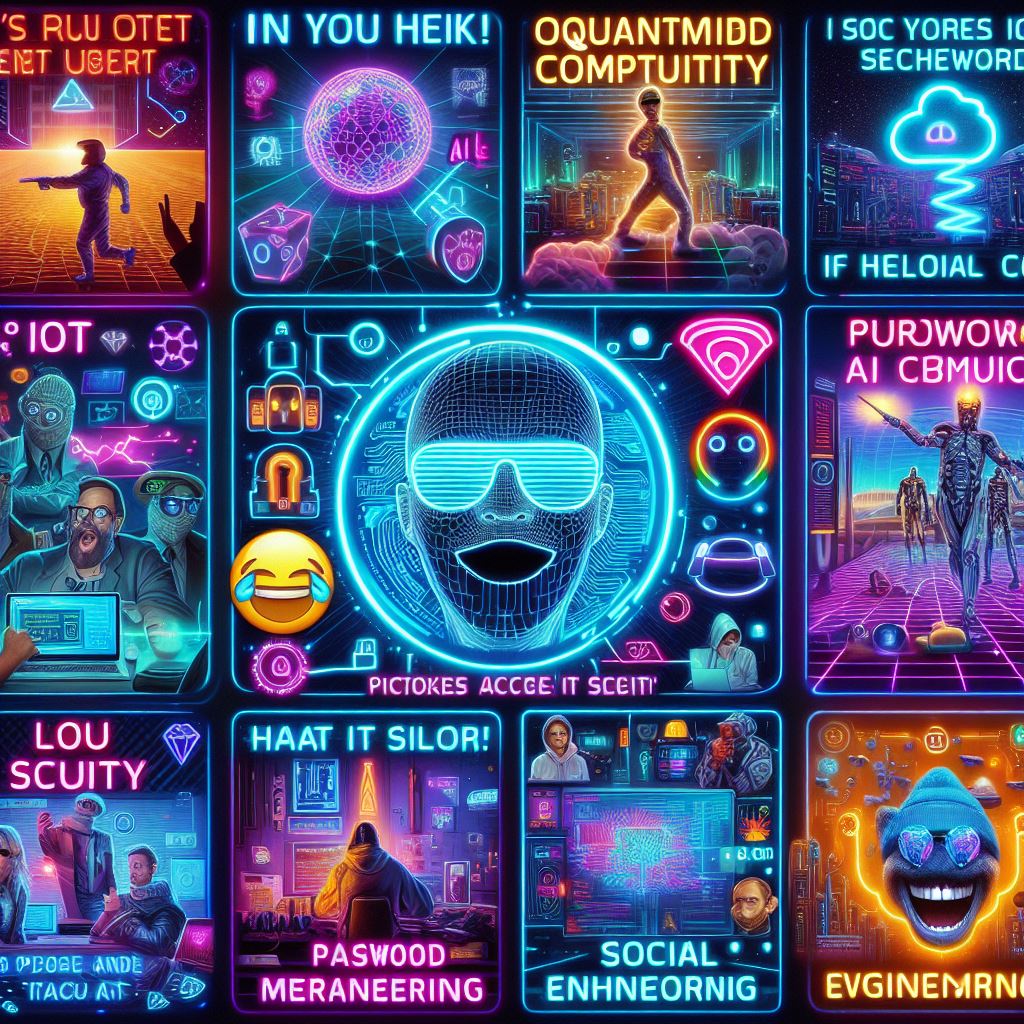
The cyber risks we confront are ever-changing, just like the digital landscape. Thanks to a good dose of comedy, the realm of cybersecurity memes is thankfully keeping up with the latest trends and developing issues. Join us as we delve into the most popular meme trends of 2024 and examine how, despite ever evolving cyber risks, they’re keeping us informed and, dare we say, entertained.
1. Demystifying the Metaverse: Memes Navigate the New Frontier
Funny and smart memes have been produced in large quantities as a result of the emergence of the metaverse, a virtual environment with special security issues. These memes shed light on a complicated subject while cautioning users to exercise caution and critical thought regarding their digital security in these unexplored realms. Examples of these memes include drawing attention to security flaws in virtual avatars and making light of the possibility of metaverse phishing scams.
2. Crypto Conundrums: Memes Tackle the Blockchain Boom
There are now more security flaws as a result of the increasing use of blockchain technology and cryptocurrencies. Here are several cybersecurity memes with a crypto theme! These memes address topics such as ransomware assaults that target cryptocurrency wallets, the difficulties in maintaining the security of decentralized networks, and the persistent danger of cryptocurrency frauds. These memes inform users on the possible hazards linked with cryptocurrency and encourage ethical investment habits by utilizing comedy and realistic circumstances.
3. AI in the Spotlight: Memes Explore the Ethical Dilemma
As a tremendous tool and possible threat, artificial intelligence (AI) is quickly changing the cybersecurity landscape. Memes related to cybersecurity are reflecting this complex relationship; some make fun of the notion of hackers powered by AI, while others draw attention to the moral dilemmas associated with using AI in cybersecurity. These memes start meaningful discussions on AI’s future and how it will affect our online safety.
4. Cloud Security Concerns: Memes Keep it Light, But Serious
Cloud security concerns are become increasingly relevant as more businesses shift their data to the cloud. Memes about cybersecurity that focus on the cloud humorously address these worries by bringing up subjects like cloud storage data breaches, securing access to cloud apps, and comprehending cloud provider obligations. These memes encourage people to learn about cloud security best practices and ask questions while keeping the dialogue fun.
5. Staying Vigilant: Memes Promote Proactive Cybersecurity
Cybersecurity memes are essential for motivating users to take proactive security measures, such as using strong passwords and reminding them to update their software. These memes operate as gentle reminders to practice better online hygiene, offering everything from humorous takeaways about the significance of multi-factor authentication to relatable portrayals of the difficulty of resisting clicking on dubious links.
Though these memes offer insightful commentary and helpful reminders, it’s important to maintain educated knowledge through reliable sources and engage in appropriate online conduct. Stay tuned for the final section, where we’ll answer frequently asked questions about cybersecurity memes and empower you to become a meme-savvy and secure digital citizen!
Conclusion: The Lasting Laugh: Cybersecurity Memes and a Secure Future
Now that we’ve entered the intriguing world of cybersecurity memes, we’re going to chuckle our way through it as we explore the newest trends that will keep us informed and engaged in the always changing digital landscape, as well as decipher their humor and educational pearls. But before we wrap up, let’s keep in mind: A single component of the cybersecurity puzzle is comedy.
While cybersecurity memes offer valuable insights and reminders, true online safety requires a multi-pronged approach:
- Stay informed: Don’t get all of your knowledge from memes. Consult reliable sources for information, such as government websites, industry experts, and cybersecurity websites.
- Adopt appropriate online conduct by using multi-factor authentication, using strong passwords, and exercising caution when clicking on links or emails.
- Maintain software updates: Update your operating systems, programs, and antivirus software frequently to fix security flaws and stop online attacks.
- Act now: Don’t wait for a cyberattack to occur. Protect your electronic devices, online accounts, and private information by taking appropriate security measures.
Memes related to cybersecurity are useful, but they shouldn’t take the place of caution and appropriate online behavior. Keep in mind that everyone has a shared responsibility to keep safe online. Humor, education, and proactive action combined can make the internet a safer and more knowledgeable place for everyone.
And lastly, let’s not overlook the amusement! Memes related to cybersecurity offer much-needed humor in a sometimes serious area. They serve as a reminder that, in addition to staying safe, we may develop and learn from the positive aspects of the digital world. Thus, spread the word about these memes sensibly, utilize them to spark discussions, and maintain the torch of cybersecurity awareness while having a few laughs in the process!
Cybersecurity Memes: FAQs Decoded (Demystifying Your Questions with a Wink)
Memes related to cybersecurity can be witty, educational, and occasionally utterly perplexing. Fear not—we’ve been there before! We’ve collected a list of frequently asked questions regarding cybersecurity memes to help you become a meme-savvy and secure digital citizen by answering any remaining questions:
1. Where can I find the best cybersecurity memes?
The internet is your meme-tastic oyster! These are a few of our top choices:
- Communities on Reddit: Subreddits with tons of tech-related humor, such as r/cybersecuritymemes and r/programmer humor, are great places to find cybersecurity pearls.
- Social media: To receive a daily dose of awareness through memes, follow cybersecurity professionals and groups on social media platforms such as Instagram and Twitter.
- News websites: Many cybersecurity news websites feature meme roundups or articles highlighting trending memes.
- Meme creation platforms: Make memes of yourself with sites like Imgflip and Kapwing. Recall to follow moral principles and refrain from producing objectionable or damaging content.
2. How can I use cybersecurity memes for educational purposes?
Memes are powerful learning tools! Here are some ideas:
- Share them in presentations or workshops: Memes can spark discussions, break the ice, and make complex topics more relatable.
- In classes or training sessions, use these as debate starters: Promote analyzing and thinking critically about the security signals concealed in the humor.
- Create your own memes to educate others: Sharing your cybersecurity expertise in this way can be entertaining and interesting. Just remember to ensure accuracy and ethical considerations.
3. Is it okay to create and share memes that make fun of cybercrime victims?
People and organizations are actually and horribly impacted by cybercrime. Memes that denigrate or mock victims are offensive, hurtful, and reinforce negative stereotypes. Try your hand at creating memes that promote awareness, understanding, and responsible behavior online.
4. What moral issues should be taken into account when utilizing cybersecurity memes?
Here are some crucial moral factors to think about:
- Consider your audience: Steer clear of making rude, racist, or damaging stereotype-promoting memes.
- Don’t disseminate false information: Make sure the cybersecurity lessons your memes provide are true and supported by reliable sources.
- Observe intellectual property: Never use content or pictures protected by copyright without authorization.
- Use humor sensibly: Keep in mind that the intention is to educate and create awareness, not to make light of or capitalize on important situations.
5. How can I identify fake or misleading cybersecurity memes?
Take caution while viewing memes that:
- Advocate for improbable remedies or rapid fixes: There are no shortcuts in cybersecurity; it’s a continuous process.
- Employ strategies to generate fear: Avoid clicking on memes that make you feel anxious or panicked.
- arise from untrustworthy sources: Before spreading the meme, find out where it originated and conduct some investigation.
- include false information: Something is most likely true if it looks too good to be true. See reliable sources for up-to-date cybersecurity knowledge.
6. Where can I find more humorous cybersecurity stuff that is also educational?
We’ve got you covered! Check out these resources:
- Websites: The CyberWire, Krebs on Security, Schneier on Security
- Podcasts: Security Now, Risky Business, Smashing Security
- YouTube channels: Hak5, John Hammond, Infosec Institute
- Books: The Cuckoo’s Egg, Ghost in the Wires, and Catch Me If You Can
Recall that the key to making everyone’s digital world safer and more secure is education, proper usage of humor, and responsible online behavior. Now, go and responsibly meme, but above all, be careful!
Final thought
Decoding the Laughter, Empowering Your Defense (With a Meme, of Course!)
Our amusing tour through the intriguing realm of cybersecurity memes has come to an end. We’ve figured out their humor, found their hidden educational treasures, and investigated the newest developments that keep us updated and—dare we say it—entertained in the rapidly changing digital world.
But keep in mind that cybersecurity memes are only one part of the picture before you click away. Real online safety necessitates a multifaceted strategy:
- Stay informed: Consult reliable sources for information rather than depending only on memes.
- Practice responsible behavior: Your friends are multi-factor authentication, strong passwords, and alertness to questionable activities.
- Keep software updated: Resolve the weaknesses to keep up with the cybercriminals.
- Be proactive: Instead than waiting for an attack, secure your data and devices.
Recall that while humor can be a useful tool, caution and proper online behavior are still necessary. Everybody has a part to play in building an online community that is safer and better informed. Thus, spread the word about these memes sensibly, utilize them to spark discussions, and maintain the torch of cybersecurity awareness while having a few laughs in the process!

